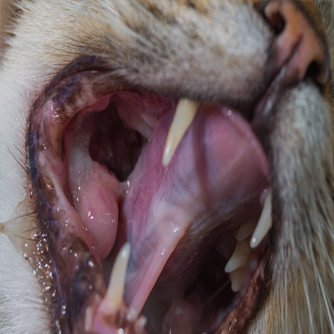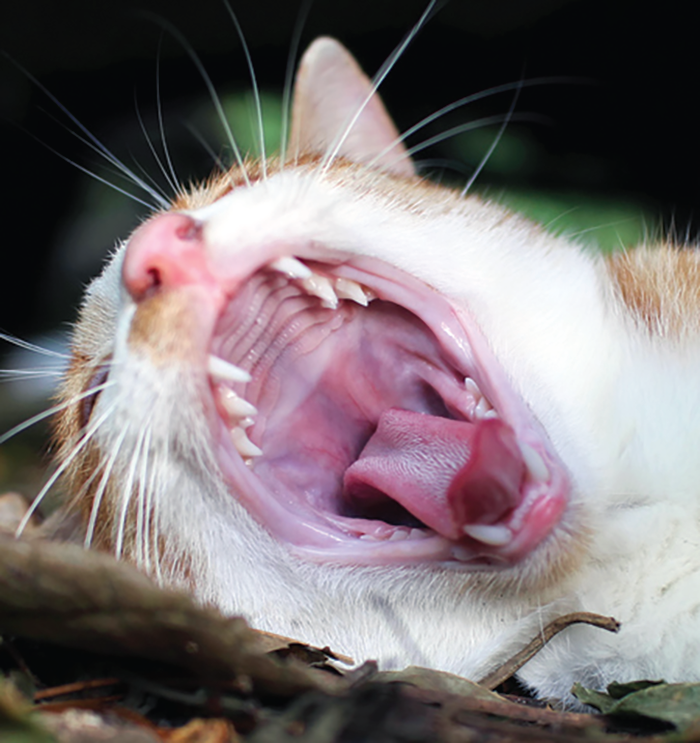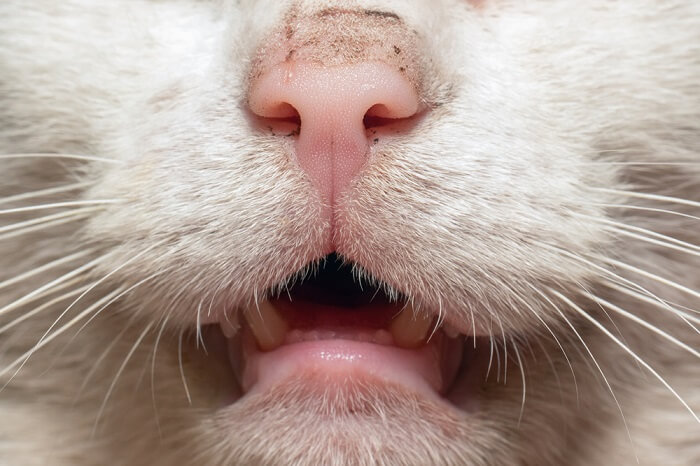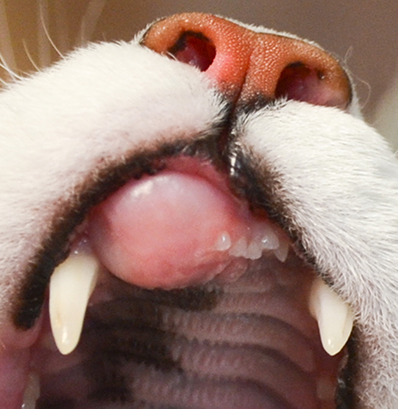fibrosarcoma in cats mouth
These tumors arise from the connective and fibrous tissues of the oral cavity. They are often very difficult to distinguish from the more common bone cancer osteosarcoma when small biopsy samples are evaluated.

Mouth Cancer Gingiva Fibrosarcoma In Cats Petmd
Treatment involves surgical removal of the tumors and radiation treatment may be considered if surgery is incomplete.
. These tumors may spread to the underlying bone causing pain. In cats fibrosarcomas arise most commonly from a point on the body where a vaccine has. Typically by the time the tumor is found it has metastasized dangerously but that is not to say that it cannot be treated satisfactorily.
Fibrosarcoma is an uncommon type of cancer to affect the bone. As with other tumors the cause is unknown. Oral fibrosarcomas are the second most common malignant oral tumor in cats.
Fibrosarcoma FSA is the second most common tumor of the feline oral cavity. In-depth Information on Bone Fibrosarcoma in Cats. Fibrosarcoma is a type of tumor that arises out of bone and connective tissue in dogs and cats but these tumors are far more common in dogs than in cats.
This disease is fairly rare in cats. Both of these tumors are locally aggressive can grow to a large size very quickly ulcerate and cause considerable pain. The most common location for a fibrosarcoma of the the mouth is in the gums gingiva.
Diagnosis may be performed through fine needle aspiration or biopsy. These tumors are seen more commonly in dogs than cats and are seen in all ages although it is most common in middle aged and older animals. Get NHVs most useful pet cancer supplements in one holistic pack.
The underlying cause of carcinogenesis is unknown but potential risk factors include. The second most common is fibrosarcoma. They are most commonly associated with the rabies vaccine and the vaccine for feline leukemia virus.
They arise as masses in the mouth more commonly than in the legs. What are the symptoms of oral fibrosarcomas in cats and dogs. Ad Help your pet cope with symptoms like nausea loss of appetite and energy.
Pets with oral tumors will typically have symptoms of increased salivation drooling facial swelling mouth bleed weight loss foul breath oral discharge difficulty. Feline oral squamous cell carcinoma FOSCC is the most common oral tumor in cats accounting for 70 to 80 of all oral tumors. 1 Squamous cell carcinoma SCC arises from the normal squamous epithelium of the oral cavity.
FSA generally occurs in older cats median age 10 12 years however cats as young as one year of age and as old as 22 years have been reported. Vaccine associated fibrosarcomas are tumors that arise at sites where cats have been vaccinated. Call 530-752-1393 to schedule an appointment with the Oncology Service.
Gender appears to play some role with male cats being seen for gingival tumors more often that female cats. In the canine fibrosarcomas most commonly arise from the mouth from inside the jaw bone. Nasal and paranasal sinus fibrosarcomas are slow growing progressive invasive tumors of the nose nasal cavity and surrounding communicating recesses.
Approximately 10 20 of feline oral tumors are FSA. Nasal and paranasal fibrosarcoma is characterized by a malignant tumor based in the connective tissue of the nasal passage or in the surrounding area. Most cats and dogs with oral cancer have a mass in the mouth noticed by the owner.
The most common oral tumor seen in cats is squamous cell carcinoma. Cats that are afflicted with gingival fibrosarcomas are on average seven and a half years old but these tumors have been seen in cats from the age of six months to fifteen years.

Tuffy Yellow Lab Currently Pregnant Due May 7 2014 Golden Retriever Labrador Tuffy

Introduction To Oral Neoplasia In The Dog Cat Today S Veterinary Practice

Mouth Cancer Gingiva Fibrosarcoma In Cats Petmd

Oral Tumors In Cats Centennial Animal Hospital
Oral Tumors In A Cat In Southwest Florida

Pet Oral Tumors At Punta Gorda Animal Hospital

Oral Cavity Diseases Catwatch Newsletter

Staging And Treatment Of Oral Tumors In Dogs Medvet

Managing Fibrosarcoma In Cats And Dogs Mommy S Memorandum

Mouth Cancer In Cats Causes Symptoms Treatment All About Cats

Mouth Cancer Gingiva Fibrosarcoma In Cats Petmd

Anesthesia Is It Safe For Cats When Is It Necessary Cattime Cat Pictures For Kids Cats Cat Facts

Fibrosarcoma And Spindle Cell Tumors In Dogs Vca Animal Hospital
/GettyImages-11673268481-ff230807a7e04e2db8e38e148edb19a5.jpg)
